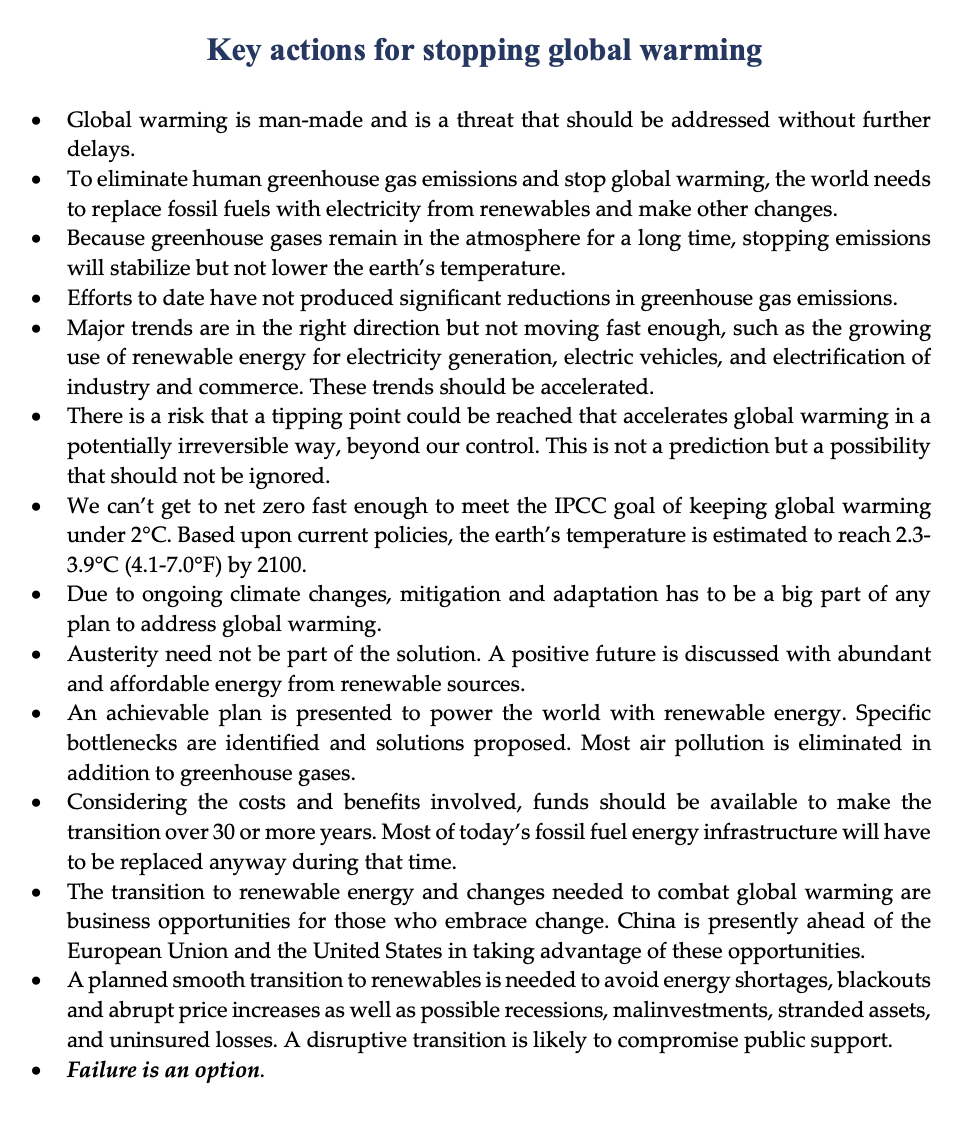KEY POINT
Key actions for stopping global warming
- Global warming is man-made and is a threat that should be addressed without further delays.
- To eliminate human greenhouse gas emissions and stop global warming, the world needs to replace fossil fuels with electricity from renewables and make other changes.
- Because greenhouse gases remain in the atmosphere for a long time, stopping emissions will stabilize but not lower the earth’s temperature.
- Efforts to date have not produced significant reductions in greenhouse gas emissions.
- Major trends are in the right direction but not moving fast enough, such as the growing use of renewable energy for electricity generation, electric vehicles, and electrification of industry and commerce. These trends should be accelerated.
- There is a risk that a tipping point could be reached that accelerates global warming in a potentially irreversible way, beyond our control. This is not a prediction but a possibility that should not be ignored.
- We can’t get to net zero fast enough to meet the IPCC goal of keeping global warming under 2°C. Based upon current policies, the earth’s temperature is estimated to reach 2.3-3.9°C (4.1-7.0°F) by 2100.
- Due to ongoing climate changes, mitigation and adaptation has to be a big part of any plan to address global warming.
- Austerity need not be part of the solution. A positive future is discussed with abundant and affordable energy from renewable sources.
- An achievable plan is presented to power the world with renewable energy. Specific bottlenecks are identified and solutions proposed. Most air pollution is eliminated in addition to greenhouse gases.
- Considering the costs and benefits involved, funds should be available to make the transition over 30 or more years. Most of today’s fossil fuel energy infrastructure will have to be replaced anyway during that time.
- The transition to renewable energy and changes needed to combat global warming are business opportunities for those who embrace change. China is presently ahead of the European Union and the United States in taking advantage of these opportunities.
- A planned smooth transition to renewables is needed to avoid energy shortages, blackouts and abrupt price increases as well as possible recessions, malinvestments, stranded assets, and uninsured losses. A disruptive transition is likely to compromise public support.
- Failure is an option.

